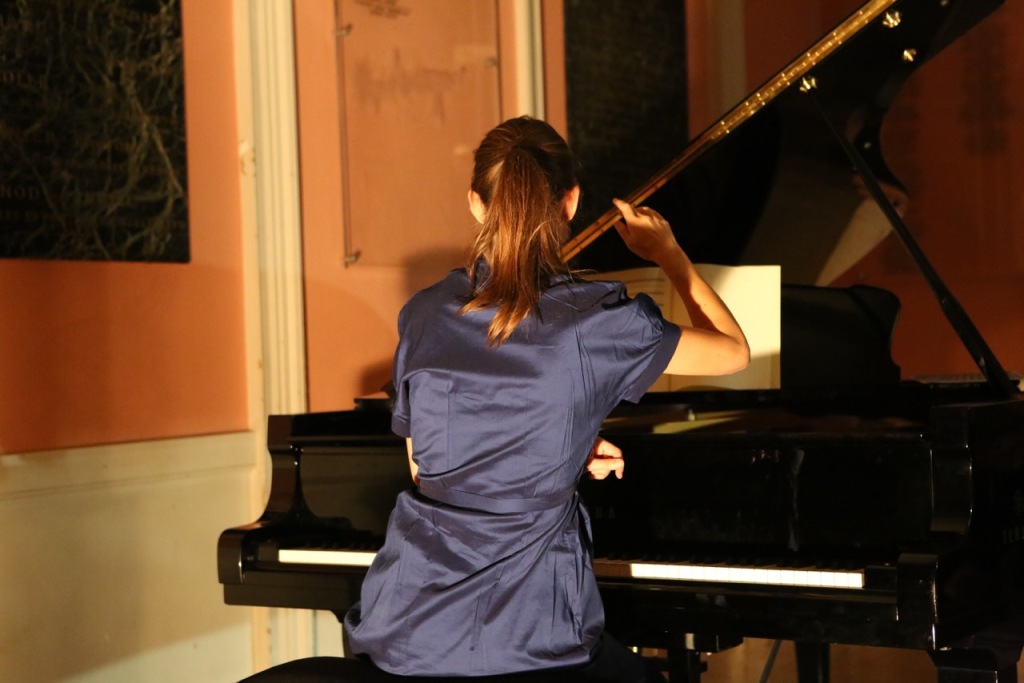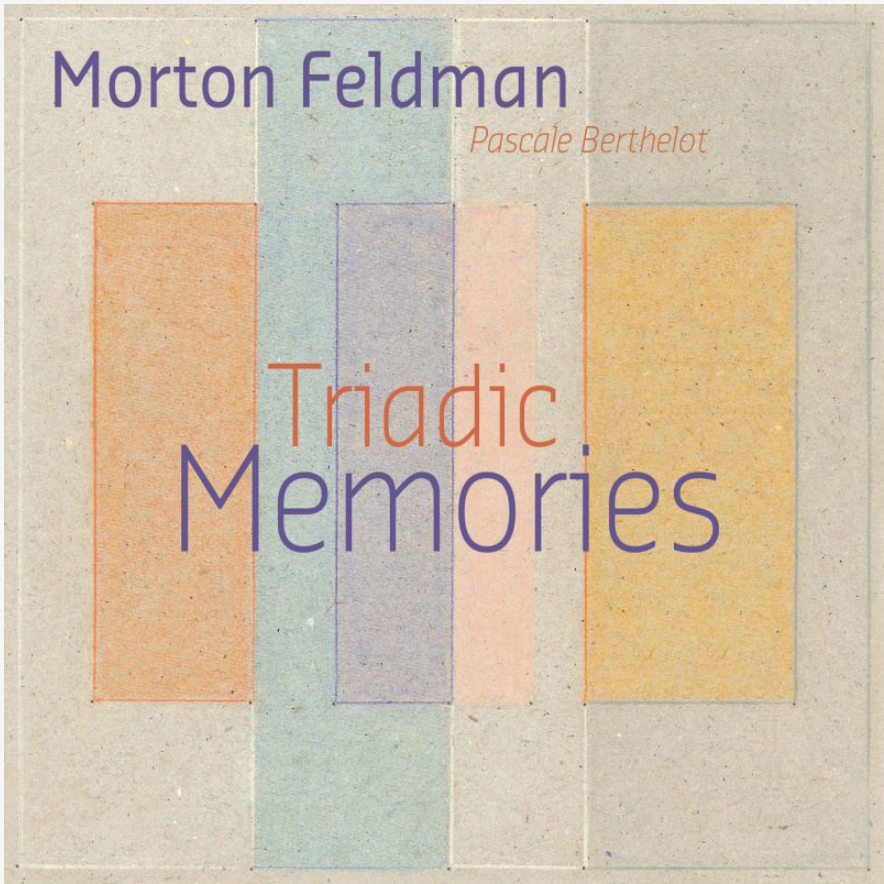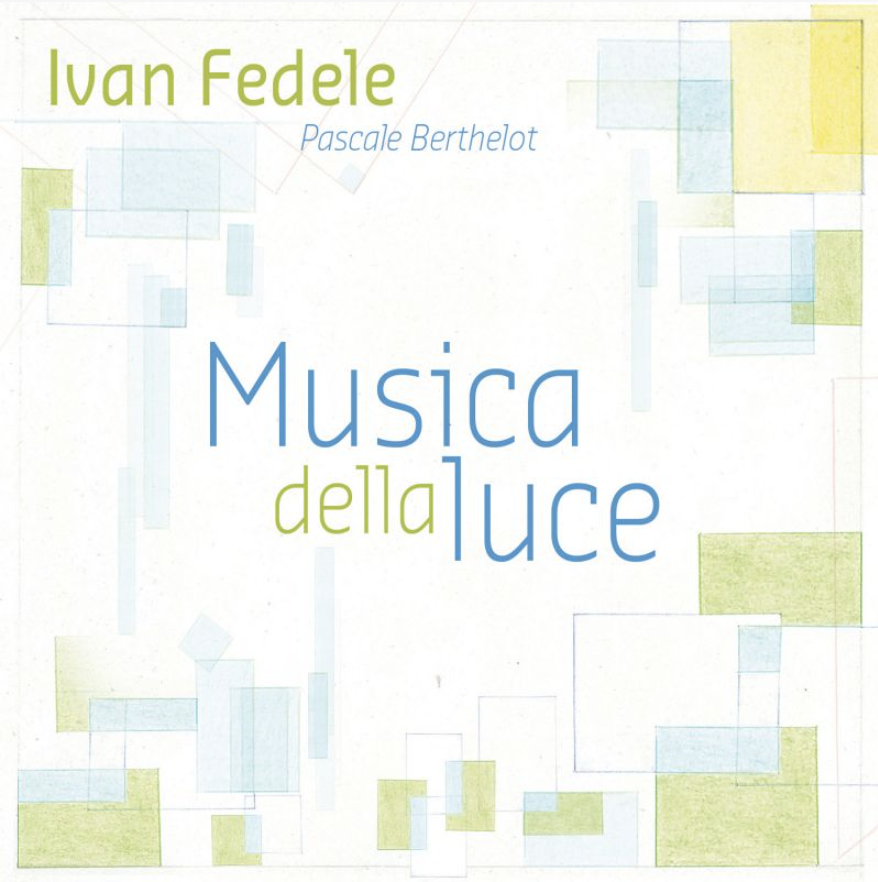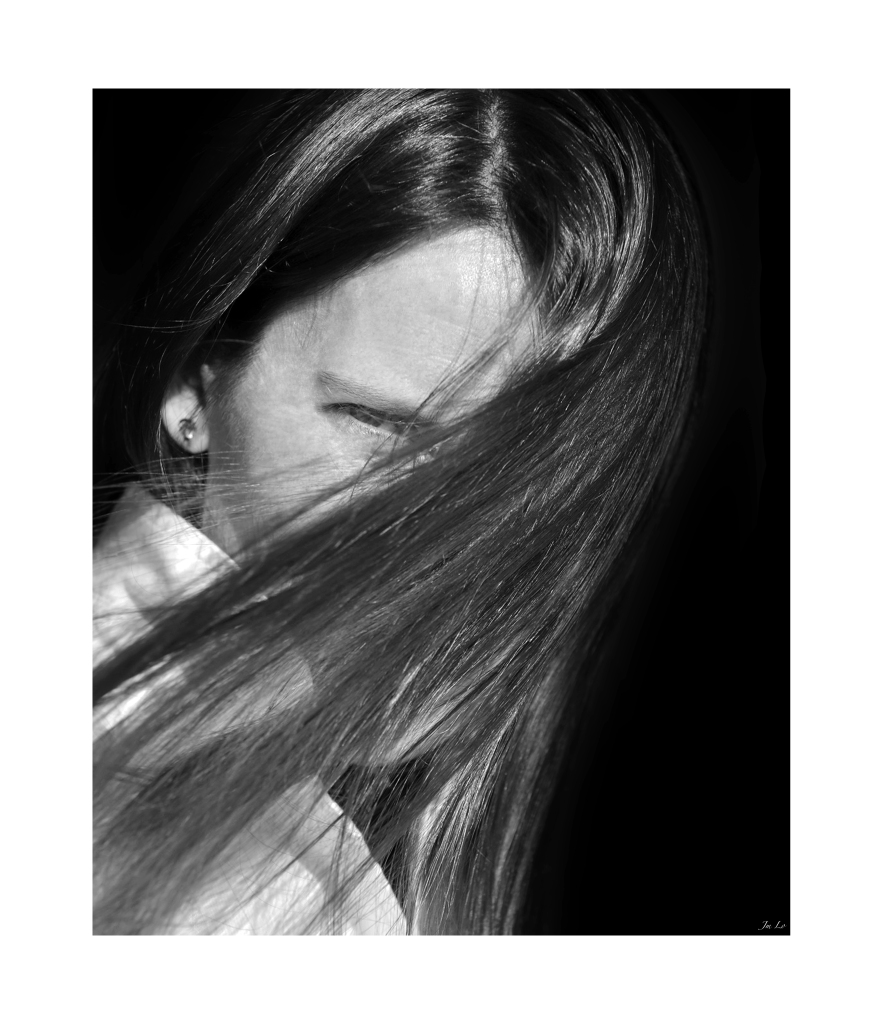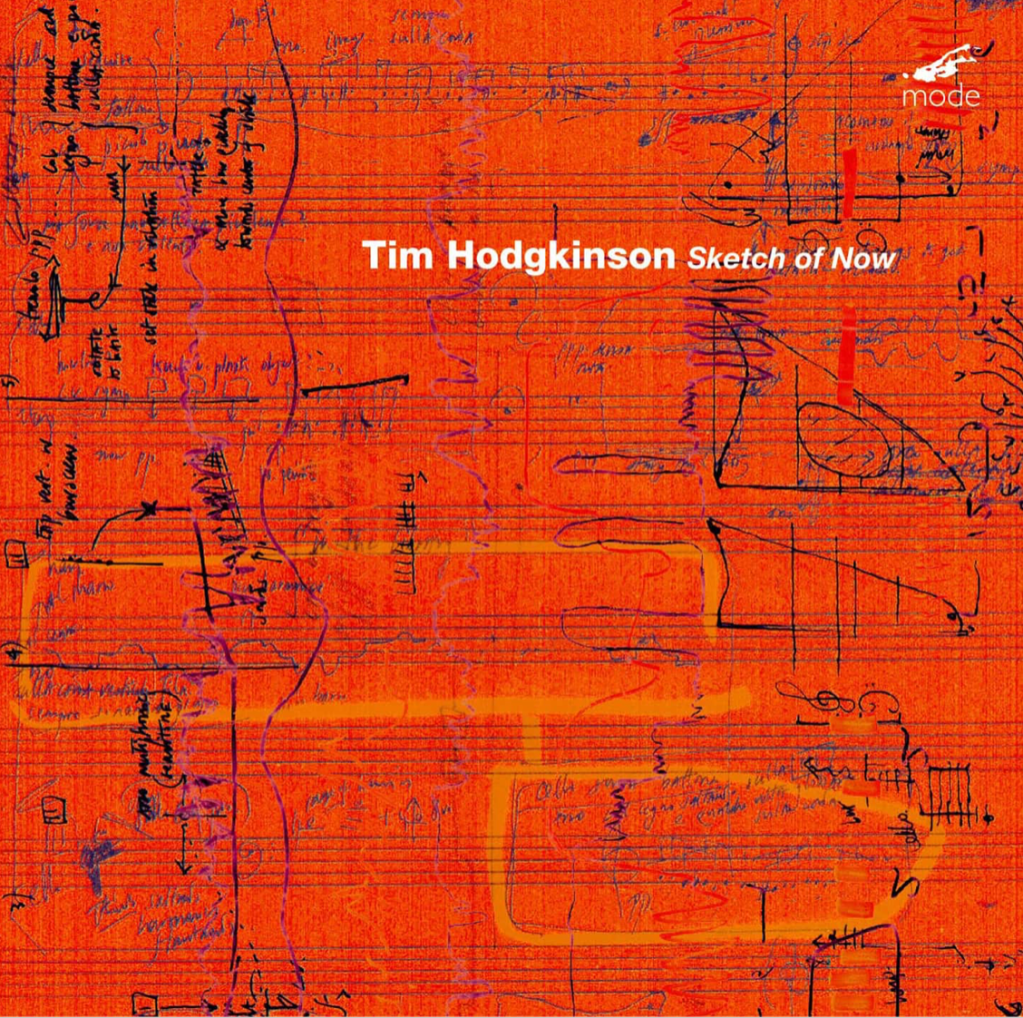New Album » Saison secrète » improvisation solo

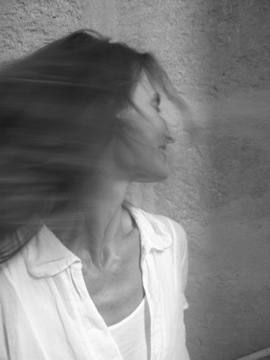
Distribution ECM Records (INTERNATIONAL)
www.ecmrecords.com
PIAS (FRANCE)
At ‘La Buissonne music studio’, a space she has tamed for several years during her recordings, Pascale Berthelot has opened up the silky-sounded path which, since her childhood and with the tips of her fingers, has been guiding her destiny.
To the point of bewildering herself, this new opus, recorded in the course of an insolent drift playing with codes and dogma so many times repeated to offer an unprecedented grammar, marks a decisive turning point in her career as a musician that she would now like to direct towards the cross(l)over with other artistic universes
Today, in « Secret Season », at the invitation of Gérard de Haro, she now presents what has risen on the open horizon of the unknown, i.e. an abyssal field, a little music from the antechamber of a new musical territory, a filigree of her relationship to the world, a surprising claim written in ink from the felt of the hammers of her heart.
Pascale Berthelot makes us dive into a parallel universe madly lulled by this random movement of a Lost in translation and offers us a fifth season where intuition and imagination reveal in real-time the DNA of an artist as sensitive as she is sensual.
.
Au studio La Buissonne, espace qu’elle a apprivoisé depuis plusieurs années lors de ses enregistrements, s’est ouvert pour Pascale Berthelot le chemin bruit-soyeux qui, depuis son enfance et du bout de ses doigts, a guidé son destin.
Au point de s’en étonner elle-même, ce nouvel opus, enregistré au cours d’une dérive insolente se jouant des codes et du dogme tant de fois répétés pour en proposer une inédite grammaire, marque un tournant décisif dans sa carrière de musicienne qu’elle aimerait désormais orienter vers le cross(l)over avec d’autres univers artistiques.
Dans « Saison secrète », elle présente aujourd’hui, à l’invitation de Gérard de Haro, ce qui a surgi à l’horizon ouvert de l’inconnu, c’est à dire un champ abyssal, petite musique de l’antichambre d’un nouveau territoire musical, un filigrane de son rapport au monde, une revendication surprenante écrite à l’encre du feutre des marteaux de son cœur.
Pascale Berthelot nous fait basculer dans un univers parallèle éperdument bercée par ce mouvement aléatoire d’un Lost in translationet nous offre une cinquième saison où l’intuition et l’imaginaire révèlent en Real-time l’ADN d’une artiste aussi sensitive que sensuelle.
//
JOHN CAGE / MUSIC FOR PIANO 4-84 OVERLAPPED
PASCALE BERTHELOT
Pascale Berthelot, piano Steinway & sons, préparé par Alain Massoneau
Enregistrement, Gérard de Haro, Studios La Buissonne – 2017
Music for piano (1952-62), as well as Music of changes (1951), has been composed applying different procedures of chance operations.
The discovery and utilization of imperfections of the paper, Cage was writing on, have been the principal method to determine the pitch of the musical material, for example. At the same time these pieces (4-84) assemble the independant musical material composed for the choreography SOLO SUITE IN SPACE AND TIME by M. Cunningham.
The idea and choice to record MUSIC FOR PIANO 4-84 overlapped in one unique piece (the whole cycle contains pieces 1-85) is due to the fact, that only this specific group of pieces can be played consecutively or overlapped by one or more pianist/s, as indicated in the scores.
By this choice, the conditions of production, the recording technology of the studio itself, became an extension of what we are (Cage), and the idea to perform the option of being played together and overlapped was leading us to this discographic project. One is becoming a multitude emerging from the heterogenerative polylogue of alterity.
According to the idea of a heterogenisis, the interest of this CD is to offer the possibility to listen to these 80 pieces in one, in which the successiv and overlapped single tracks of the recording are unfolding a new sound dimension merging from the polyphonic texture creating soundscapes and conciliating the singulary of different time-structures : to perceive, within the listening experience, the musical material and the instrumental gesture as the happening event of the instant.
Distribution ECM Records (INTERNATIONAL)
www.ecmrecords.com
PIAS (FRANCE)
.
TRIADIC MEMORIES (1981), MORTON FELDMAN
PASCALE BERTHELOT
What Western musical forms have become is a paraphrase of memory. But memory could operate otherwise as well. In Triadic Memories, a new piano work of mine, there is a section of different types of chords where each chord is slowly repeated. One chord might be repeated three times, another, seven or eight – depending on how long I felt it should go on. Quite soon into a new chord I would forget the reiterated chord before it. I then reconstructed the entire section: rearranging its earlier progression and changing the number of times a particular chord was repeated. This way of working was a conscious attempt at ‘formalizing’ a disorientation of memory. Chords are heard repeated without any discernible pattern. In this regularity (though there are slight gradations of tempo) there is a suggestion that what we hear is functional and directional, but we soon realize that this is an illusion; a bit like walking the streets of Berlin – where all the building look alike, even if they‘re not. Someone without my experience would look at the written text of Triadic Memories and would be completely unable to imagine the resulting music. He would say that the manuscript is empty, that it is not very interesting, that it doesn’t sound like the way it’s written. If I were to judge simply from the written score, I would say that there is nothing there. The pedal is extremely important, it gives the piece its general character. In fact, when you listen, you have no idea as to how rhythmically complicated it is on paper. It floats. On paper it appears to be a rhythm, but it is not the case, it is duration.
Distribution ECM Records (INTERNATIONAL)
www.ecmrecords.com
PIAS (FRANCE)
MUSICA DELLA LUCE
Work’s for piano IVAN FEDELE / pASCALE BERTHELOT
“The Boréalis Studies explore the dimension and quality of tone above all else.
A second fundamental aspect is light: the pianist must reproduce an icy luminosity, sharp and oblique. I perceived the Boreal Hemisphere in Finland, and this is how I feel it must be interpreted.”
“The Austral Studies are brilliant and extrovert. Titles I, II and III refer to precise geographical locations and IV and V to two species of birds. These titles are meant as suggestions rather than directions. The suggested region is the hemisphere that is closest to the pole. Here the light becomes warmer even though the angle of incidence is still very oblique. There are no indications for the pedal in the Etudes Australes. Its use is suggested by the harmonic context, by the “character” of each Etude and above all by the acoustic notion of “resonance” that goes beyond the psychological aspect of the composition.”
Toccata, for piano
“For the author, this composition has a strong emotional value for it explicitly refers to his experience as a young pianist. The piece emerges from a tender memory of this period of life and from an intuitive approach to the instrument evoking “that which remains when the rest is forgotten”. This singular approach to the intimate practice of the keyboard produces the musical material of the Toccata: in particular, repetition, which is the essential element that intensifies its magical aspect.”
The Cadenze for piano are brief compositions of an extemporaneous or improvised type in which the imagination follows the thread of a varied and changing formal and musical intuition.
Proposed in aphoristic forms, the Cadenze explore the poetic microcosms in a time period that is both circumscribed and open.
Each one purposely uses a limited and very concise vocabulary in which the intention of the composer is to “leave traces and resonances in the memory, far beyond the listening time.”
Nachtmusik is an exclusively pianistic excerpt of Deu notturni con figura for piano and electronic piano.
Distribution ECM Records (INTERNATIONAL)
www.ecmrecords.com
PIAS (FRANCE)
BEATOCELLO in E moll
BEAT RICHNER & PASCALE BERTHELOT
https://www.beat-richner.ch/music

Sony Music Switzerland
TIM HODGKINSON / SKETCH OF NOW
Pascale Berthelot / Jacques Di Donato / Isabelle Duthoit
Mode Records 164
I once got into trouble with Fred Frith by comparing one of his recent pieces (not all that favourably, as I recall) to his old stuff with Henry Cow. He had a point. So if you pick this up expecting it to be another one of those colourful knitted socks, forget it. Clarinettist / composer Tim Hodgkinson has come a long way since « Nirvana for Mice » – or rather, gone a long way, as he’s spent a lot of time out in the wilderness of Siberia researching shamanic music and ritual. More recently he’s been dusting off his improv chops in the trio Konk Pack, with Thomas Lehn and Roger Turner (what happened to Konk Pack, by the way?), and, as this splendid debut on Mode reveals, concentrating on his composition. Three of the six pieces on Sketch Of Now were recorded in Romania, with Iancu Dumitrescu and Ana-Maria Avram’s Hyperion Ensemble. Hence the Romanian translation of the title track Aici Schiteaza pe Acum, a scary nine minutes of « accumulation and discharge » of sonic energy for ensemble and tape. Hodgkinson plays the solo clarinet (and bass clarinet) parts himself in Vers Kongsu II and Fighting / Breathing, the former an energetic tussle with the Romanians (plus Vinny Golia, making a guest appearance on bass clarinet), the latter a sparring match with pre-recorded percussion. The split-second timing and fresh unpredictability of Hodgkinson’s music owe much to his skill as an improviser, but he’s got a sharp ear for orchestral timbre too, and puts it to impressive use. It’s not easy listening though; Fragor, for computer-modified cello and electric guitar (both performed by the composer, it seems – there’s no mention of personnel in the booklet) is what my mother would call « nasty modern music ». In fact she calls just about everything written after 1950 « nasty modern music », with the exception of a few Benjamin Britten things, but in this case she’s got a point – De Yoknapatawpha is a thorny affair, brilliantly executed (I use the word deliberately) by Jacques di Donato and Isabelle Duthoit on clarinets and pianist Pascale Berthelot, but hard to love. But they used to say that about Henry Cow, too.
PASCALE BERTHELOT, PIANO
B. Ferneyhough, K. Stockhausen, I. Fedele, D. D’Adamo, L. Nono

COLLECTION ENJEUX / CNSMD LYON
Brian Ferneyhough Lemma-Icon-Epigram
Karlheinz Stockhausen Klavierstück IX
Ivan Fedele. Etudes Boréales I-II-III-IV-V
Daniel A. D’Adamo. Carta Segreta
Luigi Nono ….. Sofferte onde serene…

